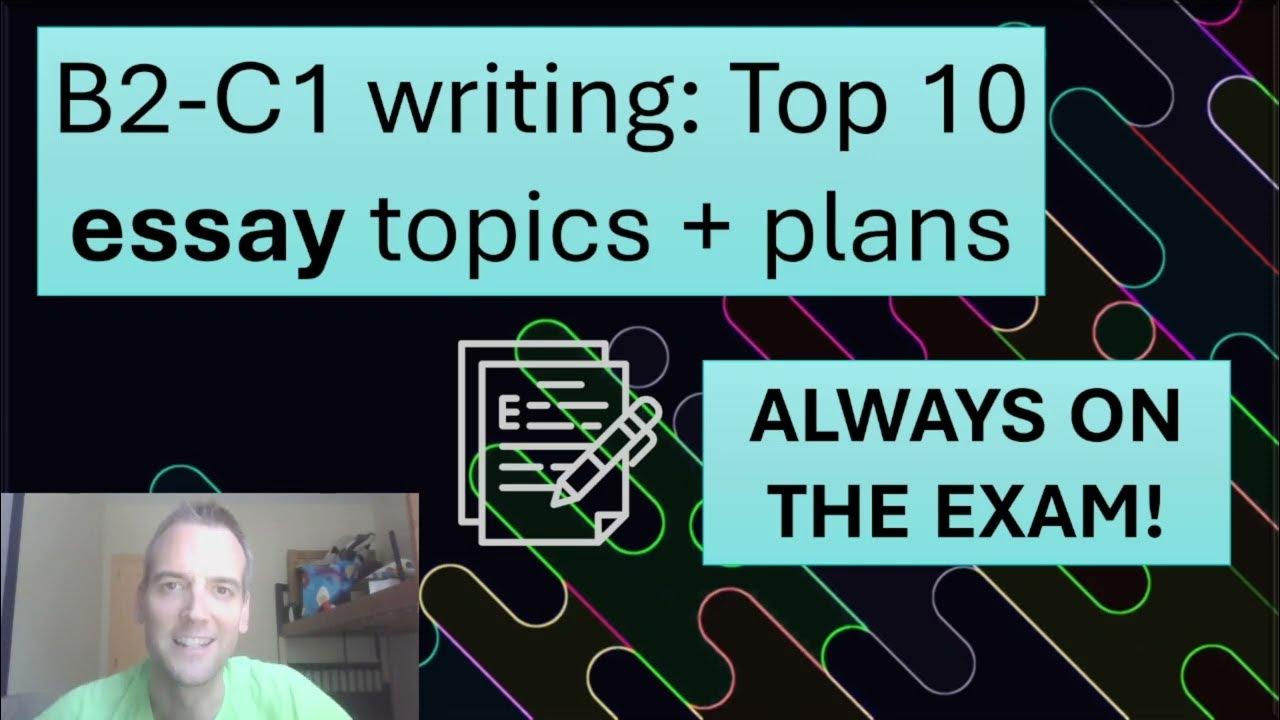iGCSE First Language English - How to EVALUATE ideas (Directed Writing/Coursework)
Summary
TLDRIn this video, an English teacher provides valuable tips for students on how to effectively evaluate a writer's ideas in non-fiction, a crucial skill for Cambridge First Language English exams. The teacher explains the importance of evaluating by considering both sides of an argument and offering a balanced perspective. Using a *Huffington Post* article on trolling as a model, the teacher demonstrates how to craft a thoughtful, persuasive response. The video also includes a list of useful evaluative phrases to help students improve their writing and create a convincing argumentative voice in their responses.
Takeaways
- 😀 The speaker is an English teacher who helps students prepare for the Cambridge First Language English exams.
- 😀 The lesson focuses on evaluating ideas in non-fiction texts, a critical skill for both Paper 2 and coursework assignments.
- 😀 Evaluating means considering both pros and cons of an argument, and presenting a balanced view with your own insights.
- 😀 Being able to evaluate effectively is key for success in Paper 2, especially in the Directed Writing section.
- 😀 For coursework, evaluating ideas helps in writing argumentative pieces by considering different perspectives.
- 😀 The lesson provides a model example by analyzing an article about trolling, showcasing both agreement and disagreement with the writer's views.
- 😀 Evaluation in argumentative writing requires acknowledgment of both sides of an argument, not just a one-sided response.
- 😀 Evaluative phrases are essential tools to improve argumentative writing and create a convincing, balanced voice.
- 😀 Some useful evaluative phrases for agreeing include 'I agree with your perspective' and 'Your argument is compelling.'
- 😀 Phrases like 'This argument fails to consider' or 'However, your point overlooks' can be used to express disagreement.
- 😀 The speaker encourages students to use these evaluative strategies in Paper 2 responses and coursework to strengthen their writing.
Q & A
What is the main focus of today's video?
-The main focus of the video is on how to successfully evaluate a writer's ideas in a piece of non-fiction, particularly for students preparing for Cambridge First Language English exams.
Why is evaluating ideas a key skill for Cambridge First Language English students?
-Evaluating ideas is a core skill for paper two and coursework assignments, where students must assess the pros and cons of arguments presented in non-fiction texts and present their own opinions.
What are the four main aspects covered in the video lesson?
-The four main aspects covered are: 1) Understanding what it means to evaluate, 2) Why evaluation is important, 3) A model example of evaluation, and 4) Useful evaluative phrases.
What does it mean to evaluate ideas in a text?
-To evaluate ideas means to carefully consider both the pros and cons of the arguments being presented, and use this analysis to form your own opinion while acknowledging different perspectives.
Why should students aim for a balanced evaluation in argumentative writing?
-A balanced evaluation is crucial because it demonstrates critical thinking, acknowledging different sides of an argument before presenting a conclusion, which is key for successful argumentative writing.
How can students demonstrate effective evaluation in their responses?
-Students can demonstrate effective evaluation by using evaluative phrases, considering multiple viewpoints, incorporating discourse markers, and providing strong, supported opinions in their writing.
What was the example used in the video to demonstrate evaluating ideas?
-The example discussed an article from the Huffington Post about trolling, where the writer claimed that effective trolling must waste time and not be malicious. The evaluation examined both the pros and cons of this claim.
What are some evaluative phrases that can be used to express agreement or disagreement?
-Some evaluative phrases for agreement include: 'I agree,' 'Your article accurately highlights...'. For disagreement, phrases like 'However, this view fails to acknowledge...' or 'Your claim is inaccurate' can be used.
How does the video suggest students can create a convincing voice in their writing?
-To create a convincing voice, students should use rhetorical questions, hypophora, varied sentence types, and strong vocabulary choices while maintaining a balanced argument and acknowledging opposing views.
What is the importance of using a variety of sentence types in argumentative writing?
-Using a variety of sentence types helps to keep the writing engaging and persuasive, allowing the writer to convey different levels of emphasis and tone, which strengthens the overall argument.
Outlines

This section is available to paid users only. Please upgrade to access this part.
Upgrade NowMindmap

This section is available to paid users only. Please upgrade to access this part.
Upgrade NowKeywords

This section is available to paid users only. Please upgrade to access this part.
Upgrade NowHighlights

This section is available to paid users only. Please upgrade to access this part.
Upgrade NowTranscripts

This section is available to paid users only. Please upgrade to access this part.
Upgrade NowBrowse More Related Video

iGCSE First Language English - Directed Writing: MY TOP 5 TIPS!

Most common B2-C1 ESSAY topics

iGCSE First Language English - How to write a formal report (Non-fiction writing)

IELTS VOCABULARY to describe people | C1 vocabulary to describe people | Adjectives for personality

iGCSE First Language English - How to Summarise Information Walkthrough

iGCSE First Language English - The Writer's Effect: MY TOP 5 TIPS!
5.0 / 5 (0 votes)